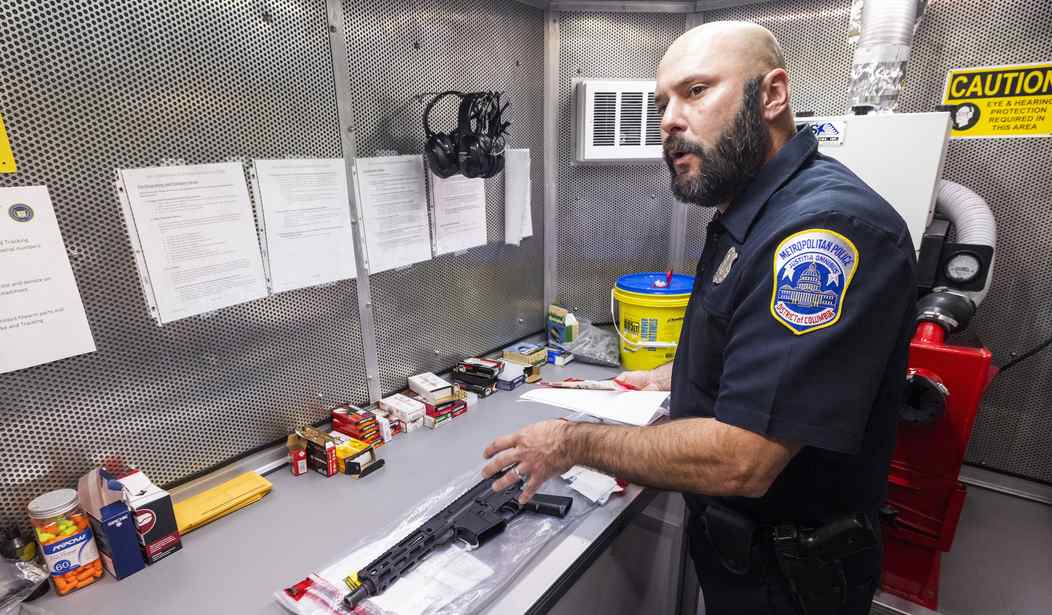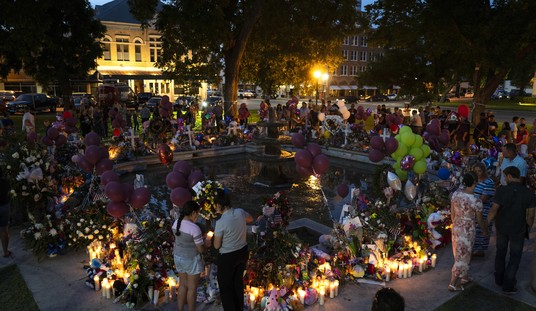Is the city of Baltimore really in the dark when it comes to fighting crime because Mayor Brandon Scott and other public officials were denied access to granular data gleaned from the ATF’s firearm traces in the city? That’s the contention of Scott and gun control advocates, and they’re getting plenty of help in advancing that narrative; not only from anti-gun groups like Everytown for Gun Safety, but from local media outlets like the Baltimore Sun as well.
The paper’s editorial board recently weighed in with their support for the lawsuit, accepting at face value the flawed premise behind the ligitation.
For the first time in nine years, Baltimore is on track to see annual homicides fall below the 300 mark in 2023, yet shootings remain a near-daily occurrence. During the first week of December, for example, gun violence took the lives of five men ranging in age from 17 to 69 years old. Three were Black, one was white and one was Hispanic. We know where and when these homicides were committed. Experts can even tell you the caliber of the bullets used. But here’s something that top elected officials — the people who are expected to set policies to counter this gun violence — can’t know for sure. They are legally prevented from being informed where the guns used to commit these terrible crimes were purchased.
Even if the actual firearm is in custody, a suspect arrested, perhaps even a confession in hand, the federal agency responsible for regulating firearms — the Bureau of Alcohol, Tobacco, Firearms and Explosives — will not reveal to Mayor Brandon Scott or members of the Baltimore City Council (or Gov. Wes Moore and members of the Maryland General Assembly, for that matter) the histories of guns used in crimes.
Note the very specific language used by the paper. They don’t say that Baltimore’s police commissioner is legally prevented from learning the results of ATF traces. Instead, they refer to “top elected officials” because the city’s law enforcement is able to access ATF trace data anytime it wants. What’s more, nothing is stopping the Baltimore PD from identifying any gun store that officers believe might be engaging in firearm trafficking or allowing straw purchases and pursuing charges, either on their own or in conjunction with state or federal law enforcement.
Scott and Everytown for Gun Safety are suing the ATF over the Tiahrt Amendment, which prohibits the agency from releasing race data to anyone other than a law enforcement agency, but there’s nothing stopping agencies like the Baltimore PD from accessing the data and reacting to any red flags raised by trace information. The Tiahrt Amendement isn’t chilling a law enforcement response to violent crime. As the gun control group Giffords makes clear, the real reason why the anti-gunners want the Tiahrt Amendment to go away is that they believe it will make it easier to sue federally licensed firearm dealers.
… the Tiahrt Amendments continue to prevent ATF from disclosing relevant data to members of the public, including researchers and litigants, for use in lawsuits against the gun industry.
There’s good reason for that as well. The ATF has long maintained that trace data is, by its very nature, an incomplete accounting of guns used in crime and where they were originally sold. Not every gun used in a crime is traced, and not every gun that’s traced has been used in a crime. In 2019, for instance, the number one category for guns traced in Baltimore was carrying a concealed weapon, with “found firearms” the second most common reason for a trace. Baltimore PD made 1,161 arrests that year for simple possession, but the ATF conducted only 966 traces for carrying without a permit. There were 1,060 arrests for aggravated assault that year, but just 221 traces stemming from assault cases.
The ATF trace data isn’t particularly useful in identifying crime trends or even any “bad apple” gun dealers, at least for law enforcement. But gun control groups aren’t trying to use the data to make arrests. They want to use it to convince a jury that a gun store is willfully engaging in practices that are fueling violence based on the number of firearms that were traced back to a particular shop. A high-volume seller might be expected to have more traces than smaller shops, but to the anti-gunners any and every trace is evidence of some wrongdoing on the part of an FFL.
While Scott and his anti-gun allies maintain its impossible for the city to come up with an effective crime fighting strategy without having access to this data, their argument falls apart when you look at what’s happening in Baltimore at the moment. For the first time in nearly a decade, the city is on pace to have fewer than 300 homicides this year, and back in April the Baltimore police released a report showing a 16 percent decline in violent crime overall since 2018. The city still has plenty of room for improvement, but it is heading in the right direction, and access to ATF trace data (or the lack thereof) has nothing to do with the turnaround. The editors of the Baltimore Sun owe it to their readers to be honest about why this lawsuit’s been filed, even if Brandon Scott and his pals at Everytown Law would rather hide the real reason for their litigation. It’s not about public safety or reducing violent crime. It’s about the destruction of the firearms industry, one lawsuit at a time.









